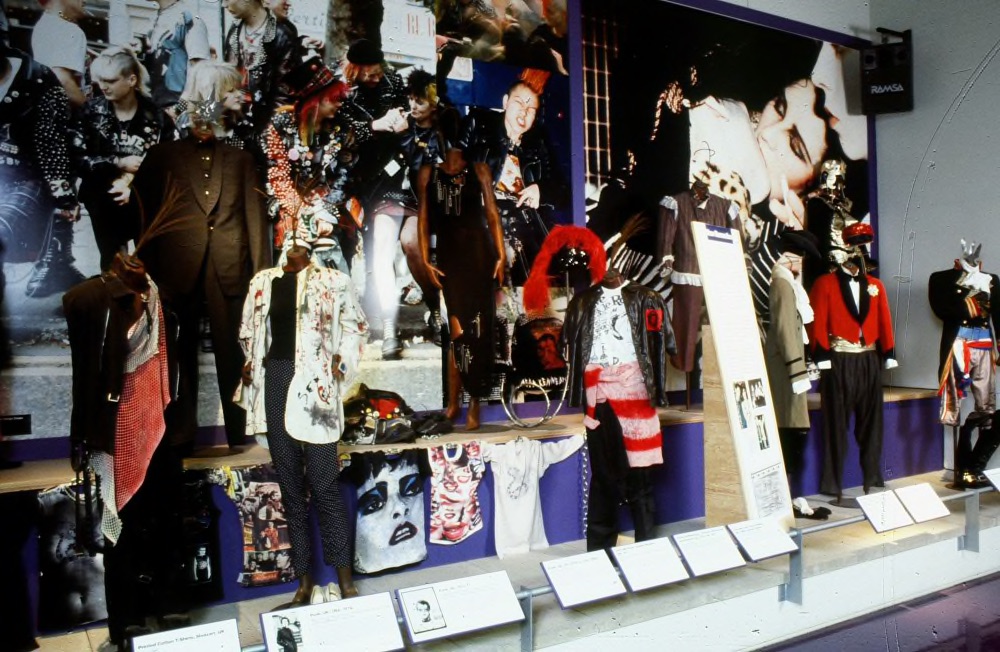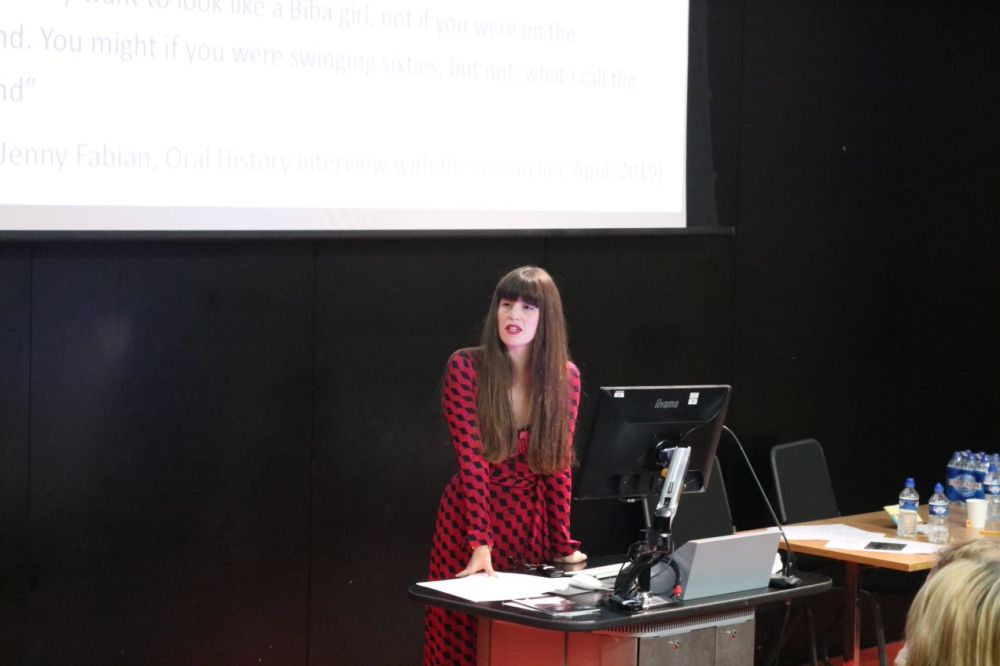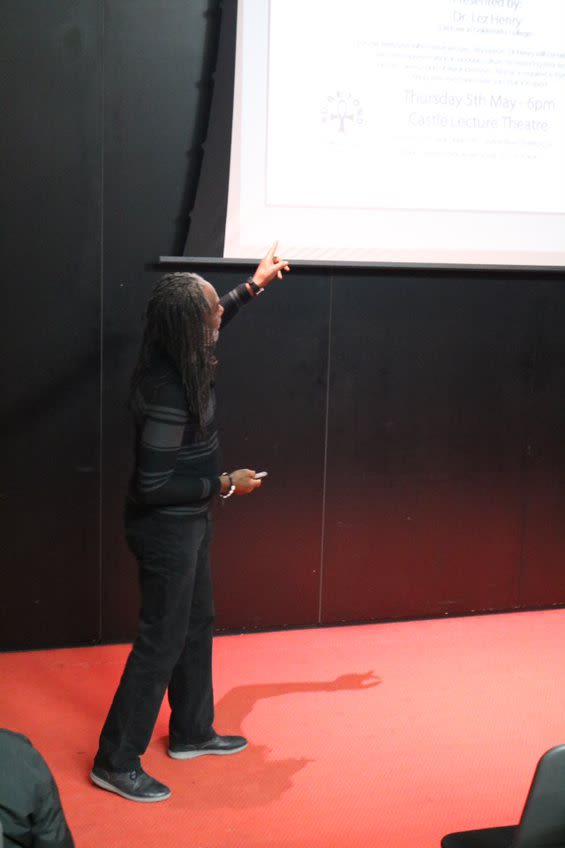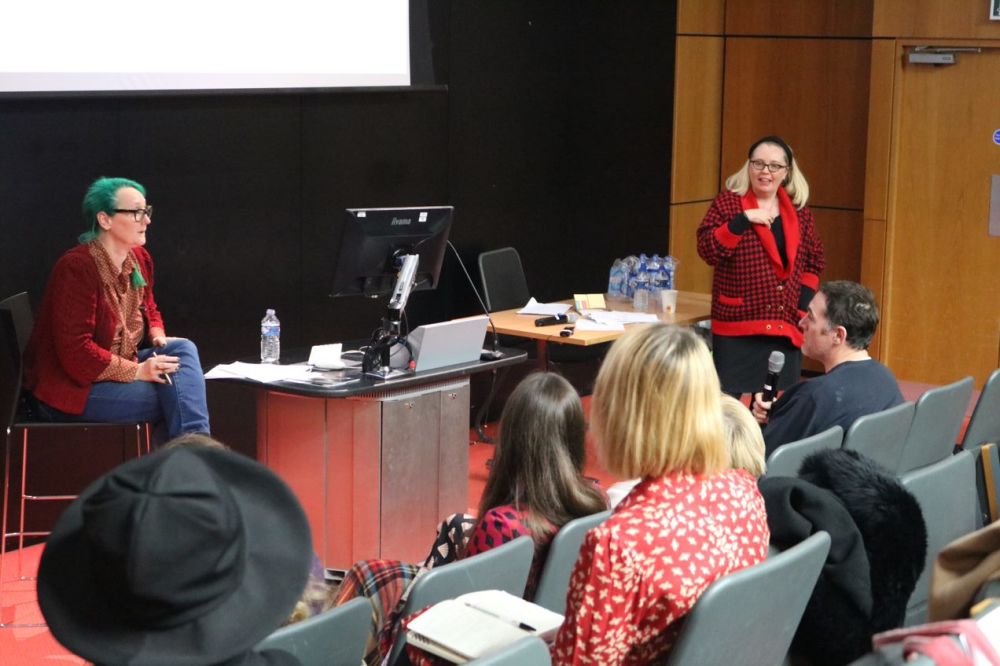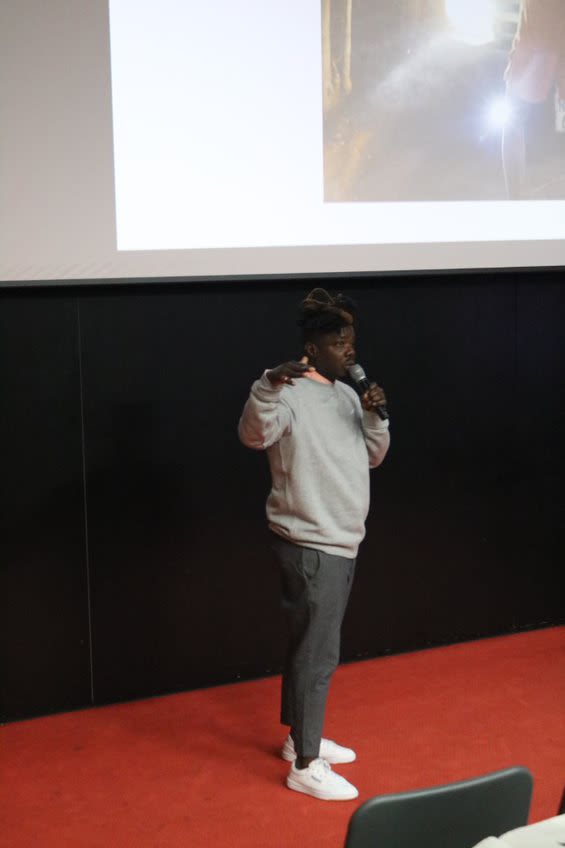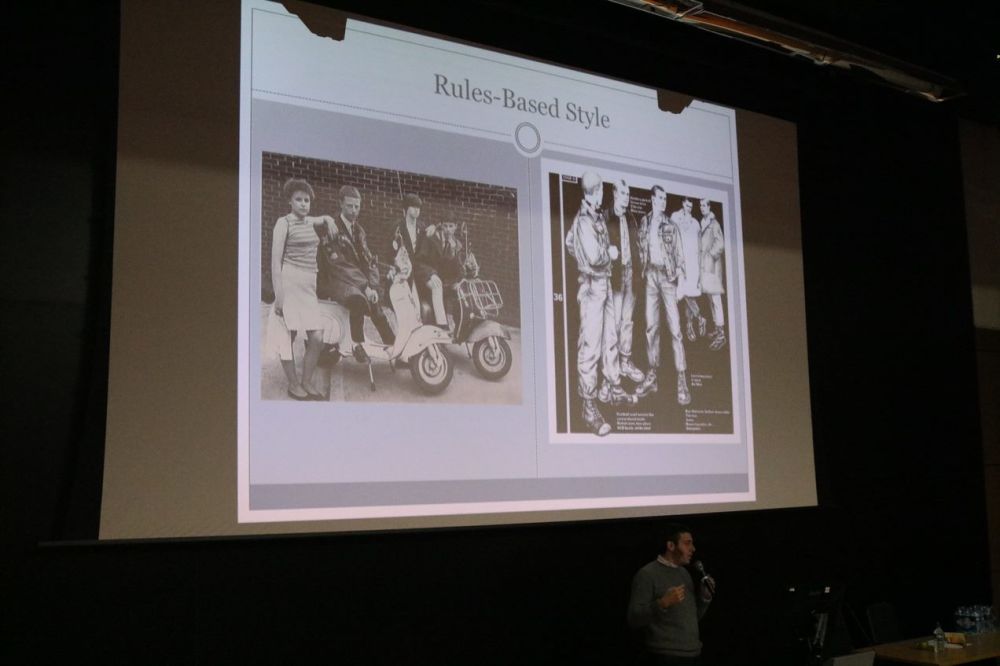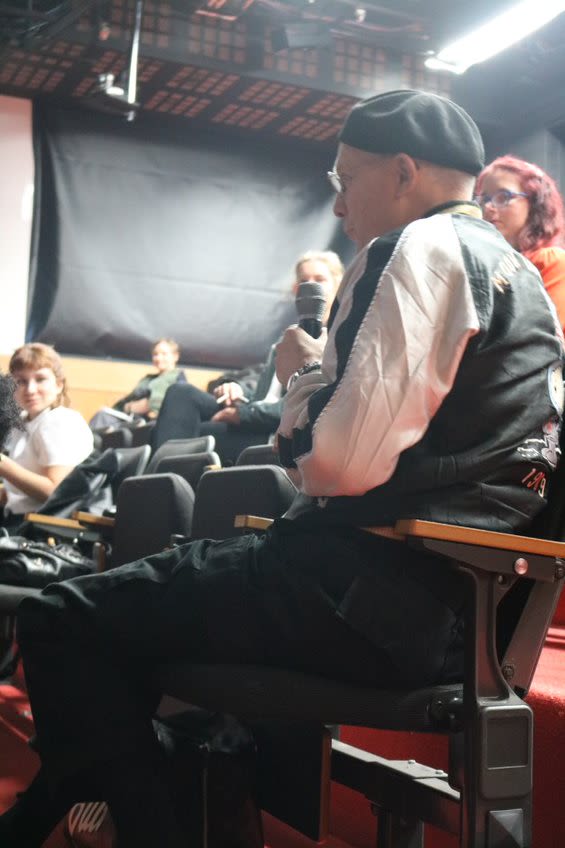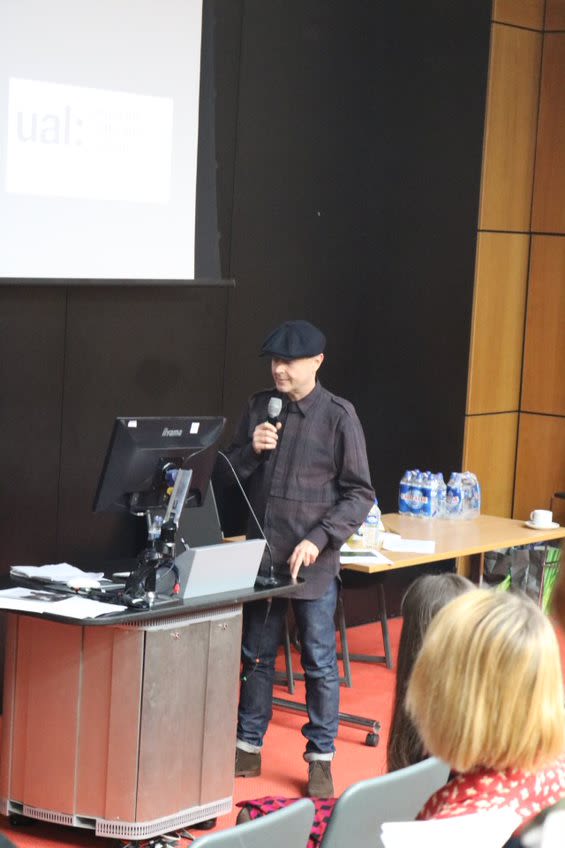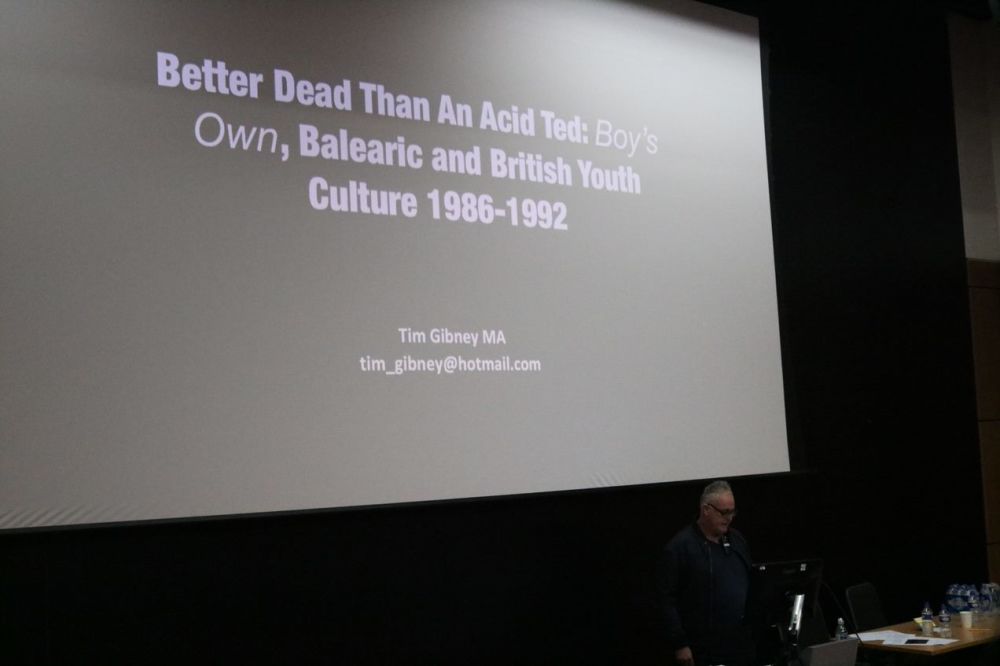The Post-Grad Community Project Fund makes funds available to UAL postgraduate students to organise events, projects and cultural interventions that bring together postgraduate students from different disciplines, courses and colleges.
On 31 October 2019, the Subcultures and their Mediated Representations Symposium was held at LCF, the project responded to the funding theme 'Resilient Communities'.
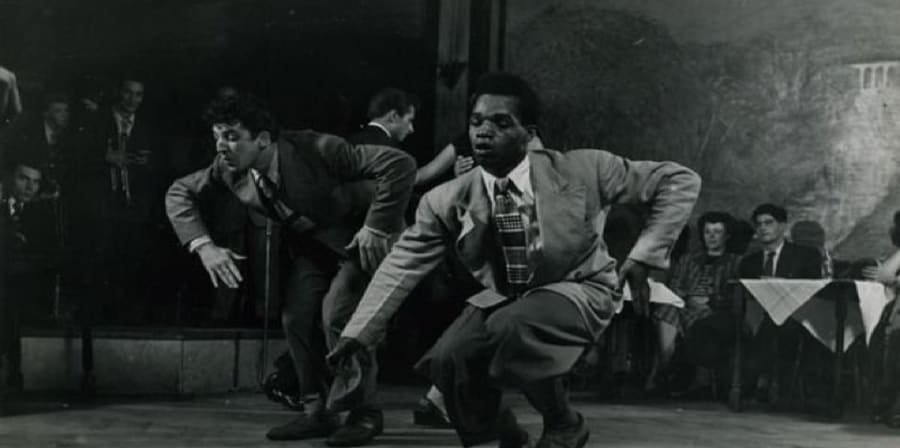
Heritage. Popular. Northern Soul. Masculinity. Majority. Mod. Locale. Groupie. Authenticity. Critic. Race. DIY. Class. Bebopper. Raver. Space. Tensions. Age. Minority. Language. Punk. Opposition. Taste. Rejection. Street. Identity. Music. Production. Orthodox. Idealism. Fashion. Politics. Economics. Gender. Geography. Appropriation. Gate-keepers. Ideology. Enfranchised. Disenfranchised. Reproduction. Dress. Communicative strategies. Femininity. High. Low. Accessible. Excluded. Trend. Agenda. Choice. Acceptance. Online. Individual. Compromise. Context. Power.
These were just some of the themes and topics under discussion during the one-day symposium, Subcultures and their Mediated Representations, hosted by three postgraduate students (one from London College of Fashion, two from Central Saint Martins) at LCF on 31 October.
The objective of the day was - through a series of diverse and fascinating set of papers - to discuss and analyse what we feel encompasses what subcultures are, is, were, what, when, how and why.
Veering from historical analyses of subcultural practices (textual, aesthetically, visually) to contemporary notions of ‘other’, ‘alternative’ and transgressive forms of action (sonically, politically) the day took in twelve diverse and disparate papers that encompassed popular music and its mediation (acid house fanzines; the UK music press critic; punk graphics and their latent meanings); a strong case for resetting the subcultural clock (Bebop jazz style as thefirst post-war subculture; the British ‘groupie’ as subcultural practitioner); how memories are (en)acted and performed (Black identity formations and articulations, militaristic machismo; online active-archivism) and also formulated (‘queer’ selves as boundary blurring actions); to issues of authentic (mis)appropriation (in the Northern Soul and Grime music scenes).
The contexts and meaning of subcultures are vast and varied with them acting as a permanent site of contestation, critique and investigation as well as perceived processes of assumed assimilation and commercial commodification. From the use of subcultural style as a tool of resistance, a show of defiance, an act of expression to its deployment as a means of articulating who we think we are and who we want to be seen as, the study of subcultures is as important today as it ever has been.
As agents of change (both with(in) and without participation) and via the observation of things that go outside, beyond, further than ‘norms’, subcultural practitioners, both consciously and sub/unconsciously, effect and affect the external world through internal dialogue and subsequent willing and unwilling mediation.
It is only by scrutinising what subcultural histories, pasts and presents are that we can understand the processes and procedures that create and continue our perception of their significance and valence. By digging deeper we are able to see the green shoots of the next crop.
Gallery
Thanks to Rachael, Abbi at the Post-Grad Community, Lewis at Arts SU and Ben Whyman, Bre Stitt and Amy de la Haye from the LCF Fashion Curation department whose help and guidance was invaluable from the very beginning.
This event was also the ‘kicking-off’ of the twenty-five year commemoration of the Street Style subculture exhibition at the V&A in 1994. Itself the subject of a one-day symposium held by the CfCC (Centre for Fashion Curation) on 16thNovember titled Subcultures: Then and Now.
More about the Post-Grad Community Project Fund
The Post-Grad Community Project Fund makes funds available to UAL postgraduate students to organise events, projects and cultural interventions that bring together postgraduate students from different disciplines, courses and colleges.
These funds are open to all current postgraduate students at UAL including taught and research students:
MA, MPhil, MRes, MSc, PGDip, PGCert, PhD and Early Career Researchers.
Proposals are encouraged to respond to one of UAL’s 4 identified research themes, enabling students to become active participants in UAL’s research culture. Projects must not be a part of an individual/groups assessed course work.
- The regular Project Fund award is up to £300, with a deadline each term.
- The EXTRA Project Fund awards of £500 - £1,000 are available only in the spring term, to enable more ambitious projects.
Find out more about the fund
Related Links:
- Post-Grad Community Project Fund
- Subcultures Interest Group
- Subcultures: Then and Now Centre for Fashion Curation story
